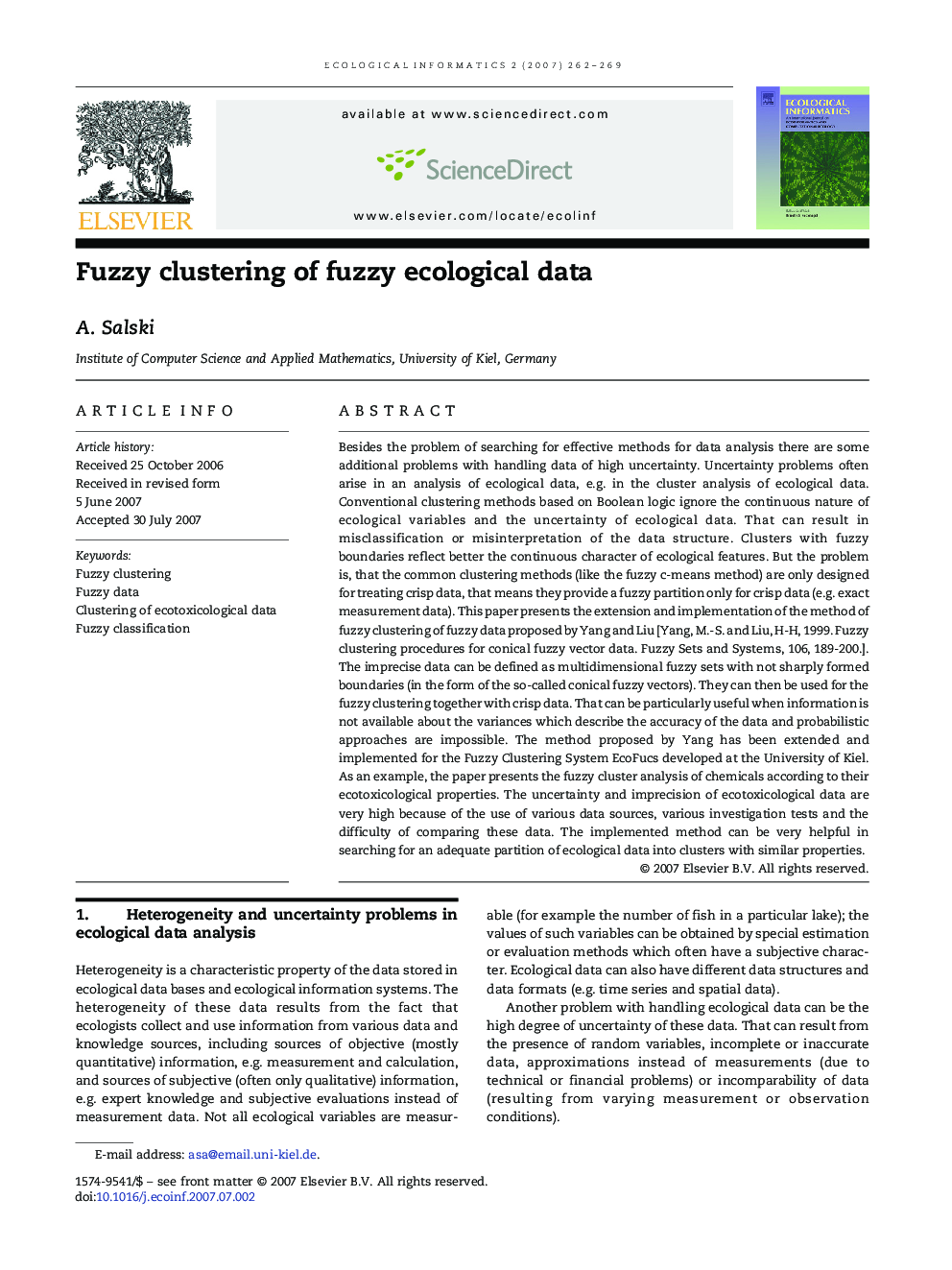| Article ID | Journal | Published Year | Pages | File Type |
|---|---|---|---|---|
| 4375384 | Ecological Informatics | 2007 | 8 Pages |
Abstract
Besides the problem of searching for effective methods for data analysis there are some additional problems with handling data of high uncertainty. Uncertainty problems often arise in an analysis of ecological data, e.g. in the cluster analysis of ecological data. Conventional clustering methods based on Boolean logic ignore the continuous nature of ecological variables and the uncertainty of ecological data. That can result in misclassification or misinterpretation of the data structure. Clusters with fuzzy boundaries reflect better the continuous character of ecological features. But the problem is, that the common clustering methods (like the fuzzy c-means method) are only designed for treating crisp data, that means they provide a fuzzy partition only for crisp data (e.g. exact measurement data). This paper presents the extension and implementation of the method of fuzzy clustering of fuzzy data proposed by Yang and Liu [Yang, M.-S. and Liu, H-H, 1999. Fuzzy clustering procedures for conical fuzzy vector data. Fuzzy Sets and Systems, 106, 189-200.]. The imprecise data can be defined as multidimensional fuzzy sets with not sharply formed boundaries (in the form of the so-called conical fuzzy vectors). They can then be used for the fuzzy clustering together with crisp data. That can be particularly useful when information is not available about the variances which describe the accuracy of the data and probabilistic approaches are impossible. The method proposed by Yang has been extended and implemented for the Fuzzy Clustering System EcoFucs developed at the University of Kiel. As an example, the paper presents the fuzzy cluster analysis of chemicals according to their ecotoxicological properties. The uncertainty and imprecision of ecotoxicological data are very high because of the use of various data sources, various investigation tests and the difficulty of comparing these data. The implemented method can be very helpful in searching for an adequate partition of ecological data into clusters with similar properties.
Related Topics
Life Sciences
Agricultural and Biological Sciences
Ecology, Evolution, Behavior and Systematics
Authors
A. Salski,
